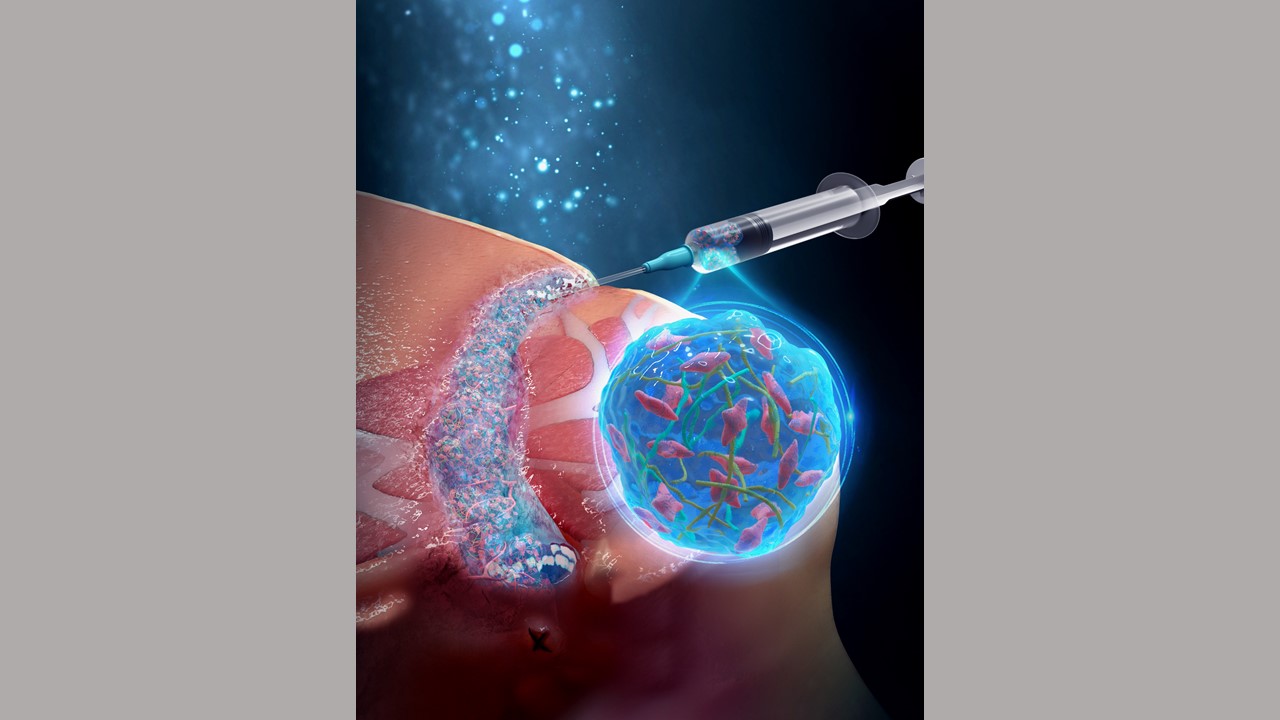Johns Hopkins researchers develop injectable hydrogel composite that promotes regenerative healing in an animal model of Crohn’s perianal fistulas
In a new study using a rat model of Crohn’s disease, a biodegradable hydrogel composite loaded with stem cells, developed by Johns Hopkins Medicine researchers, in a collaborative effort with the Whiting School of Engineering, has shown significant success in treating perianal fistulas (PAF) — one of the many complications of Crohn’s disease.
Crohn’s disease, a subtype of inflammatory bowel disease, is a disorder estimated by the U.S. Centers for Disease Control and Prevention to afflict more than three million adult Americans. About 30 percent to40 percent of patients with Crohn’s disease develop perianal fistulas — an inflamed tunnel between the skin and the inside of the anus. Fistulas can lead to pain, swelling, discomfort and leakage of blood or pus. Surgery is usually needed to treat the condition. However, more than half of patients do not benefit from current available treatments.

